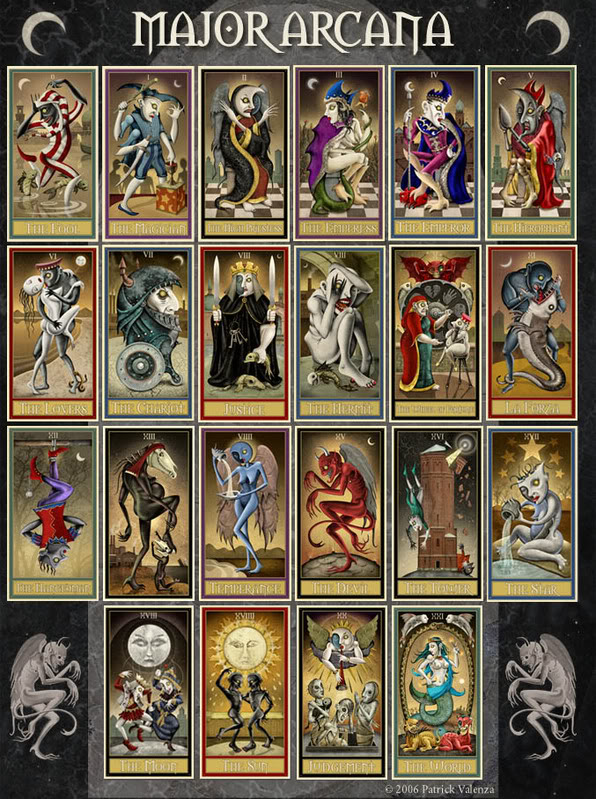Understanding the meaning of Tarot cards from a Christian perspective can lead to nuanced discussions, particularly concerning the Deviant Moon Tarot. This unique deck is characterized by its stunningly surreal imagery, which often invites contemplation and introspection. While traditional Christian ideology often views Tarot with suspicion, an analysis of the Deviant Moon Tarot can reveal connections to Christian themes of guidance, morality, and inner revelation.
The foundation of the Deviant Moon Tarot lies in its radical reinterpretation of archetypal symbols through a more whimsical and surrealist lens. Each card serves as a portal into the psyche, drawing parallels to various biblical stories and moral teachings. By interpreting these cards through a Christian lens, we can explore deeper meanings beyond their immediate visual impact.
To begin, it is essential to grasp the premise of Tarot within a Christian framework. Many Christians contend that Tarot divination is inconsistent with faith, viewing it as a distraction from divine guidance offered through prayer and scripture. However, others argue for a constructive engagement with Tarot as a form of self-exploration or personal reflection. The Deviant Moon Tarot provides rich symbolic content that can resonate with Christian values, such as faith, redemption, and the importance of moral choices.
1. **The Fool card**: The Fool signifies a new journey, embodying hope and potential. In Christian terms, this can parallel the notion of faith as one embarks on a path of spiritual awakening. Just as the Fool embraces the unknown, Christians are encouraged to trust in God’s plan, taking leaps of faith in their life’s journey. The fanciful illustration on this card evokes a sense of freedom reminiscent of biblical narratives where faith led to miraculous outcomes.
2. **The High Priestess**: This card invites contemplation of intuition and inner wisdom. In Christianity, the Holy Spirit guides believers toward truth and discernment. The imagery of the High Priestess reflects the deeper wisdom that lies within each follower, akin to the biblical motif of seeking divine counsel. By recognizing the sacred within ourselves, Christians can view this card as an affirmation of their ability to hear God’s voice amidst the clamor of the world.
3. **The Lovers**: Often recognized as a card of duality and choice, The Lovers evokes themes of relationships. From a Christian viewpoint, this card can be seen as a reminder of the importance of love—both in romantic partnerships and communal bonds. It underscores the biblical principle that God is love, emphasizing the necessity of making decisions that align with divine teachings on love and respect for one another.
4. **Death**: A commonly misunderstood card, Death symbolizes transformation rather than a literal end. In Christianity, the concept of death is interwoven with the promise of resurrection and new life. This card invites believers to relinquish old habits or mindsets, harkening back to Jesus’s call for repentance. Through transformative experiences, Christians are invited to embrace renewal, illustrating the grace found in letting go of the past.
5. **The Tower**: This card often represents upheaval, chaos, and revelation. In contrast to its daunting nature, Christians can view The Tower as a phase of divine intervention—one that challenges complacency and ignites profound transformation. Biblical stories filled with tumult, such as the plagues of Egypt or the destruction of Jerusalem, offer parallel narratives that emphasize the necessity of upheaval for spiritual growth.
6. **The Star**: Within the Tarot, The Star symbolizes hope, inspiration, and divine guidance. This resonates profoundly with Christian beliefs regarding the significance of faith and God’s providence. Just as the star guided the Magi to Jesus, this card emphasizes the importance of keeping faith alive, illuminating the path forward even in dark times. In moments of despair, Christians may turn to this card for solace and a reminder of the hope bestowed upon them through Christ.
7. **Judgment**: A card representing redemption and self-reflection, Judgment connects deeply with the Christian tenets of accountability and forgiveness. This card invites believers to evaluate their past actions and behaviors in light of their spiritual journey. It is a reminder that transformation and renewal are always possible through grace and redemption, resonating with the biblical assurance that one can always return to the path of righteousness.
8. **The World**: Concluding a cycle, The World embodies completeness and fulfillment. For Christians, this reflects the teachings of the Gospel, which emphasize the omnipresence of God and the ultimate promise of eternal life. Through this card, readers are encouraged to recognize their part in God’s vast plan and to strive for wholeness within themselves and in community with others.
In conclusion, while the Deviant Moon Tarot may initially seem incongruent with Christian beliefs, deeper engagement reveals a tapestry woven with themes of faith, love, and transformation. Through careful reflection and examination, Christians can use this deck not as a tool of divination but as a source of inspiration and personal growth. Tarot can serve as a bridge to introspection, prompting believers to align their lives more closely with the teachings of their faith.







Leave a Comment